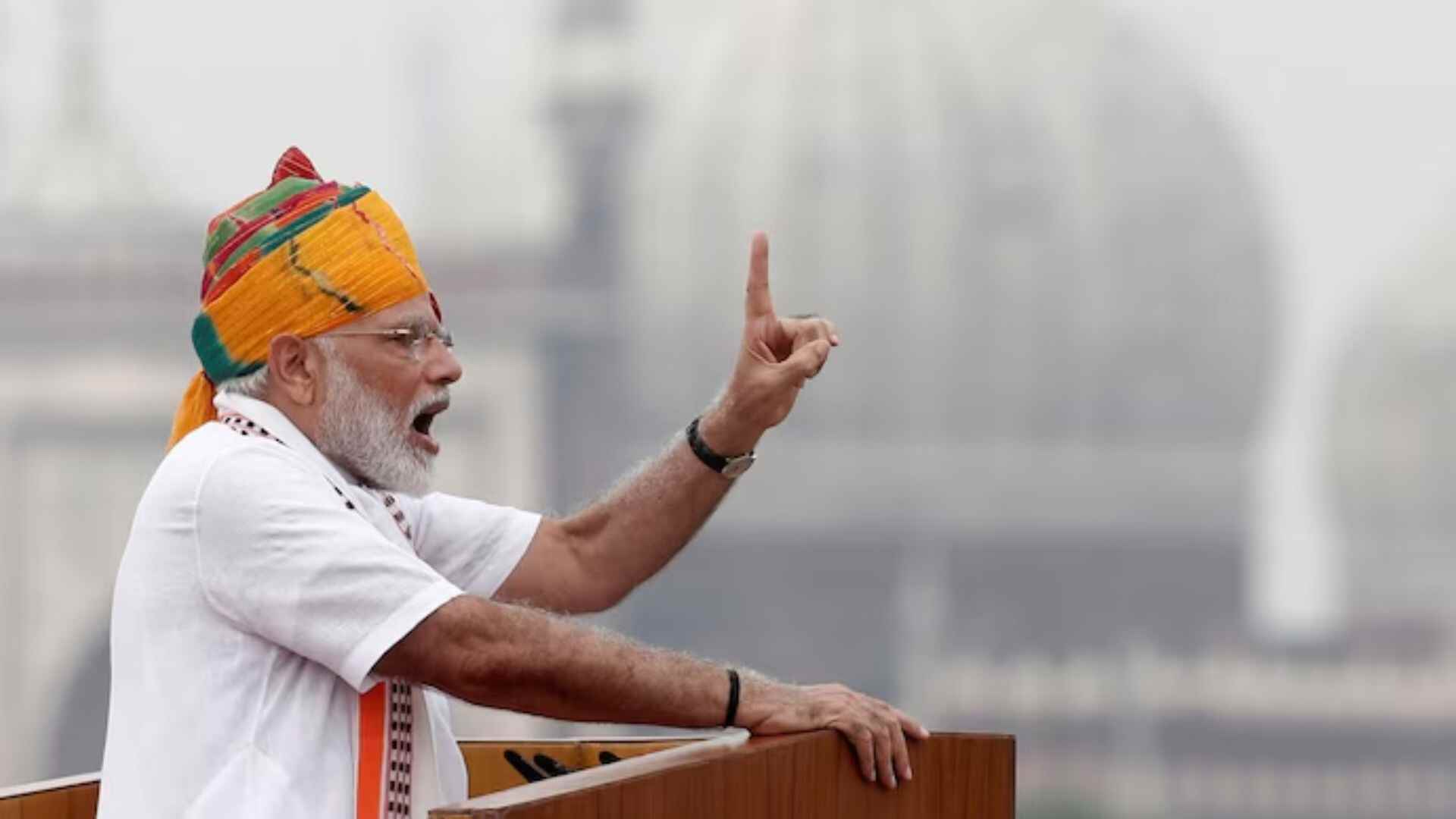Prime Minister Narendra Modi set a new milestone by hoisting the national flag at the Red Fort for the 11th consecutive time on August 15, 2024, surpassing his predecessor Manmohan Singh. This achievement makes him the third most frequent hoister of the Tricolour, after Jawaharlal Nehru, who did so 17 times from 1947 to 1964.
1. Concerns Over Bangladesh
Modi addressed the political crisis in Bangladesh, voicing concern for the safety of Hindus and other minorities in the country. He expressed hope for a quick resolution and reiterated India’s support for Bangladesh’s growth and development. “As a neighbouring country, I can understand the concern regarding whatever has happened in Bangladesh… We are committed to peace… We will continue to wish well for Bangladesh in its ‘Vikas Yatra,’” he said.
2. Push for Uniform Civil Code
The Prime Minister strongly advocated for the implementation of a uniform civil code, labeling it a “secular civil code” that should replace the current “communal” one.
3. Addressing Violence Against Women
Modi emphasized the need to publicize punishments for atrocities against women to create a deterrent effect. He highlighted his government’s efforts in promoting a “women-led development model,” but expressed ongoing concerns about incidents of rape and violence. “We have worked on a women-led development model… but I am still concerned over incidents of rape and violence against women,” Modi stated.
4. Agricultural Reforms
On the 78th Independence Day, Modi pushed for significant reforms in the agricultural sector, lauding farmers who have adopted organic farming. He envisioned India as the organic food basket of the world, aligning with the goal of ‘Viksit Bharat.’
5. Expanding Medical Education
Modi announced plans to create 75,000 additional medical seats in the next five years. He noted that many children, particularly from the middle class, still go abroad for medical education, spending substantial amounts on it.
6. Attracting Global Investment
The Prime Minister emphasized the growing interest of global companies in investing in India. He encouraged state governments to compete to attract these investments, reflecting the nation’s increasing appeal to international businesses.
7. Indirect Criticism of Opposition
Modi indirectly criticized opposition forces, suggesting that some individuals are intolerant of India’s progress unless it benefits them. He warned of a “handful of pessimistic people” who seek anarchy and emphasized the importance of national unity.
8. Battle Against Corruption
Modi condemned the culture of patronage and corruption, likening it to a “termite.” He acknowledged the personal risks involved in this battle, stating, “I know I have to pay a price for this battle, my prestige may be at stake, but national interests are more important than personal prestige.”
9. Olympic Aspirations
Modi reiterated India’s ambition to host the Olympics in 2036, underscoring the country’s capacity to organize large-scale global events. He emphasized India’s commitment to this goal amidst competition from nations like Saudi Arabia, Qatar, and Turkey.
10. Call for ‘One Nation, One Election’
The Prime Minister called for the implementation of “one nation, one election,” arguing that continuous elections hinder development. He pointed out that welfare schemes are now increasingly tied to electoral processes.









